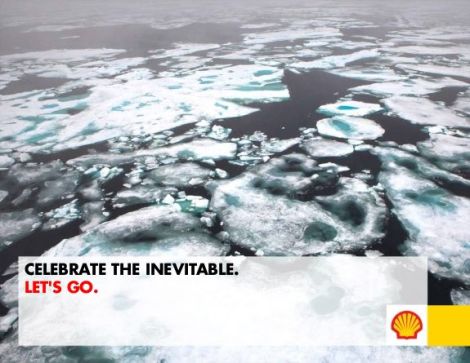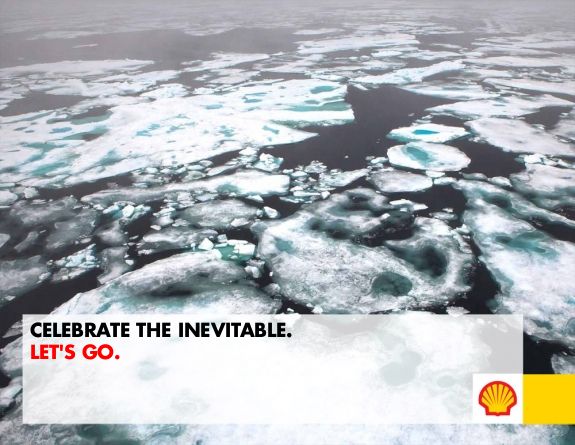In its semi-inexplicable eagerness to get Shell the permits it needed to try to drill in the Arctic last year, the government made an important and ironic concession: The company would be allowed relaxed air pollution standards. The quote the company gave in its effort to be allowed to exceed pollution limits was pretty classic, pointing out that it “demonstrated compliance with a vast majority of limits.”

But, anyway, Shell managed to not even meet the more lax pollution standards it insisted on. From the Houston Chronicle:
The Environmental Protection Agency issued two notices of violation [last] week alleging Shell ran afoul of the Clean Air Act permits governing its Kulluk drilling unit used in the Beaufort Sea and the drillship Noble Discoverer, as well as its support vessels, in the Chukchi Sea.
According to the agency, Shell’s self-reporting of emissions revealed both drilling vessels released excess nitrogen oxide, leading the EPA to conclude that Shell had “multiple permit violations for each ship” during the 2012 drilling.
The emissions go beyond ones the EPA agreed to grandfather in a waiver Shell sought before it began drilling last year. Shell had asked permission to emit an unlimited amount of ammonia and more nitrogen oxide than originally permitted from the main generator engines on the Discoverer.
The thing I like most about that paragraph is that not only did Shell not meet pollution standards, and not only did it not meet pollution standards that it specifically begged be lowered, but it did not meet those standards on two vessels both of which it lost control of at some point during the year. I mean, really, if you can’t even manage to keep the things properly anchored, a skill that was mastered by humans sometime before the birth of Christ, I’m not surprised that you can’t figure out how to keep the things from polluting.
Shell’s Curtis Smith responded as one would expect. “We continue to work with the agency to establish conditions that can be realistically achieved,” he argued. Some examples the company might find acceptable:
- Shell is prevented from spilling more than a billion gallons of diesel fuel in the ocean.
- Shell may not pollute more nitrogen oxide than a normal small-sized nation of half a billion people would create over the course of a decade.
- Shell is allowed up to ten (10) vessels escaping from their moorings in any one (1) week period, but no more.
- If Shell does actually somehow manage to drill into an oil pocket and manages to start extracting crude, it is not allowed to spill more oil than would produce a 1-to-1 ratio of oil to water in any ocean.
- If Shell does manage to start extracting, it cannot be taxed on that oil because jobs.



